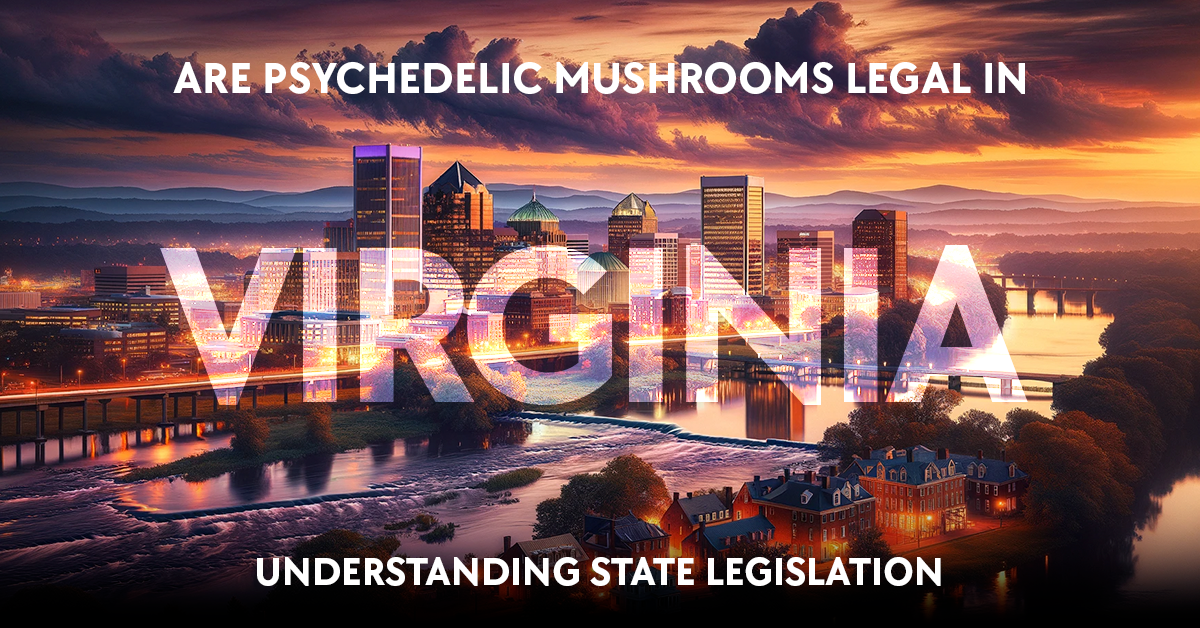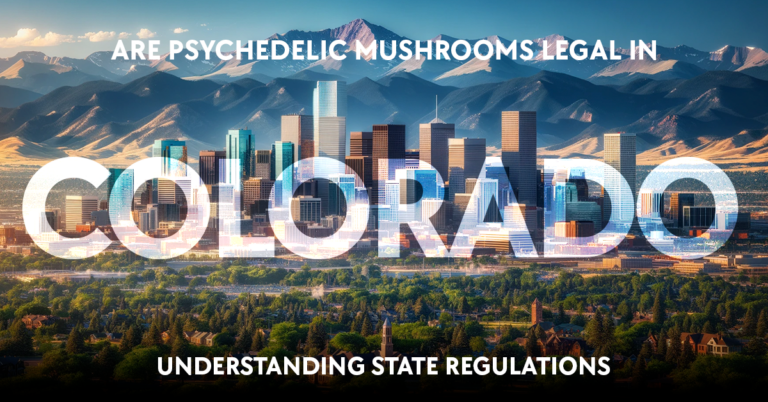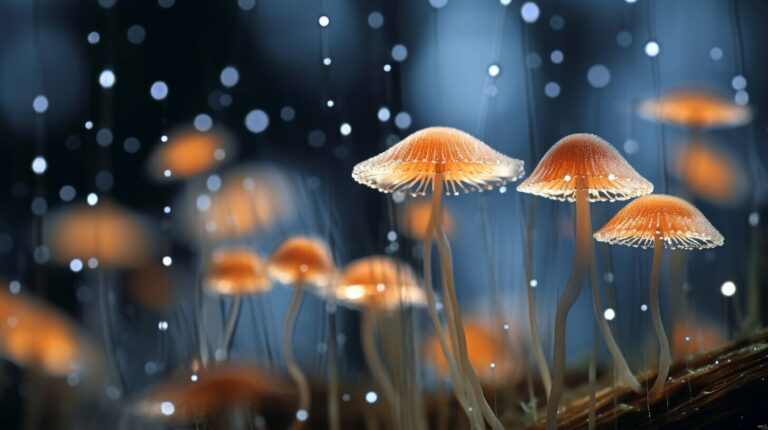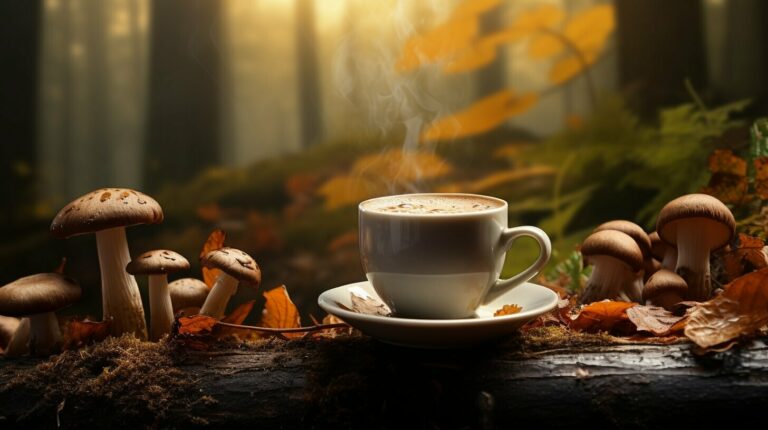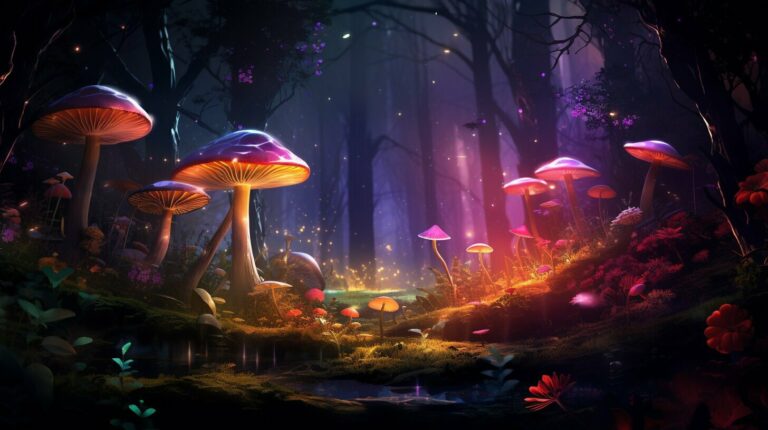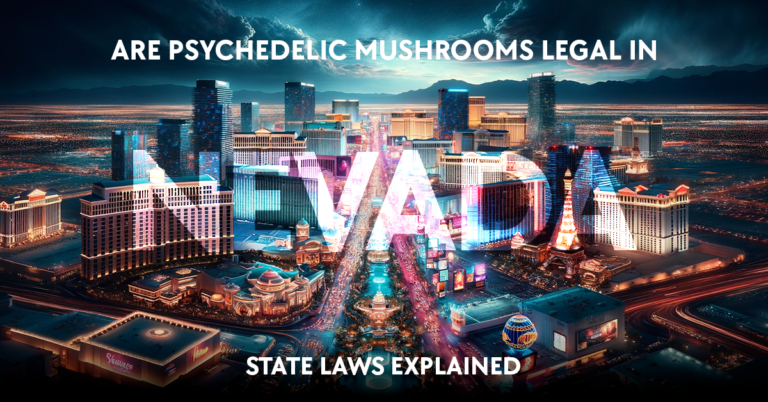In Virginia, the legality of psychedelic mushrooms, which contain psilocybin, is a topic of considerable debate. As you may be curious about the state’s stance, it’s important to note that psychedelic mushrooms remain illegal under both state and federal law. Possession, sale, or cultivation of psilocybin-containing mushrooms is still considered a criminal act, and engaging with these substances can lead to legal repercussions.

Despite the strict regulations, there has been a growing movement advocating for the medical use of psilocybin, with research suggesting potential therapeutic benefits for mental health conditions. While initiatives for decriminalizing or legalizing psychedelic mushrooms have emerged in various parts of the United States, they have not modified the legal status of these substances in Virginia as of now.
Your understanding of Virginia’s current laws regarding psychedelic substances can inform your decisions and awareness of the ongoing discussions around this topic. As conversations about the potential medical uses of psilocybin continue, lawmakers and the public are reevaluating existing policies, though any changes to the legal framework would require legislative action.
Current Legal Status
Table of Contents
https://www.youtube.com/watch?v=nt0dXnVIVTo&embed=true
In Virginia, as in many other states, psilocybin and psilocin, the psychoactive compounds found in psychedelic mushrooms, remain classified as Schedule I controlled substances. This status indicates that they are not legally recognized for medical use and are considered to have a high potential for abuse.
If you are found in possession of these substances, you face substantial penalties. Possession carries the risk of being charged with a Class 5 felony, which can result in a term of imprisonment and a significant fine. Specifically, if convicted, you could face up to 10 years in prison and be required to pay a fine of up to $2,500.
Though discussions around the legalization of psychedelic substances have gained traction due to ongoing research into their therapeutic potential, Virginia law has not changed to reflect these discussions. Any use or possession outside regulated research environments is illegal.
Here’s a brief overview for easy reference:
- Legal Status: Schedule I Controlled Substance
- Possession Penalties: Class 5 Felony
- Potential Consequences:
- Prison: Up to 10 years
- Fine: Up to $2,500
Your awareness of the legal implications of psilocybin in Virginia is crucial, as legalization has not been enacted, and the prospective therapeutic use of psychedelic mushrooms remains under rigorous scrutiny within the state.
Efforts Toward Decriminalization

In Virginia, the journey toward decriminalizing psychedelic mushrooms has seen both progressive actions and significant resistance. Your understanding of the movement’s current landscape will be enhanced by examining the legislative attempts, growing advocacy, and the challenges that counteract decriminalization efforts.
Legislative Attempts
Recent legislative actions signal a growing interest in altering Virginia’s stance on psychedelic compounds. Senator Ghazala Hashmi and Delegate Dawn Adams have been instrumental in this regard, pushing for changes within the Virginia General Assembly. Attempts to decriminalize psilocybin have been made, seeking to lessen the legal consequences for possession. While the Virginia Senate Judiciary Committee has seen such bills presented, they have yet to pass the House of Delegates, where a Republican majority holds the reins.
Advocacy and Support
Advocacy groups and individuals are vocal about the potential benefits of psychedelics, focusing on their use in treating mental health conditions. Wyly Gray, a notable advocate for veterans of war, highlights the therapeutic effects of psychedelic drugs in addressing PTSD. Bipartisan support is visible, particularly when considering the treatment options for mental health, which garners attention across the political spectrum. The decriminalization movement in Virginia is backed by current research and testimonies from individuals helped by these substances.
Challenges and Opposition
Despite advocacy efforts, significant opposition exists. The Republican-controlled House of Delegates often reflects conservative viewpoints, posing a hurdle for decriminalization bills to clear. Additionally, the Courts of Justice Committee faces consistent arguments surrounding the safety and societal impacts of decriminalizing such substances. Del. Rob Bell has articulated concerns that could influence the committee’s stance and the overall direction of psychedelic-related legislation in the state.
Penalties for Possession and Distribution

In Virginia, the legal landscape for psychedelics like psilocybin mushrooms is clear-cut. Possession or distribution of these substances remains illegal and your actions can lead to substantial penalties.
Possession of psychedelics is generally regarded as a misdemeanor. However, the law is inflexible, and being found with these substances can result in a fine. The exact monetary value of the fine depends on the quantity in your possession and any prior offenses you may have.
Distribution or intent to distribute psilocybin mushrooms elevates the seriousness of the charge to a potential felony. The consequences of such a charge are considerably more severe. If convicted, you could face financial penalties and possible prison time. The gravity of the sentence may escalate with the quantity you’re found to have distributed or intended to distribute.
Here’s a brief overview of the potential legal repercussions in Virginia:
- Misdemeanor Possession: Fine of up to $2,500 and/or up to 12 months in jail.
- Felony Possession: If possession is with the intent to distribute, you could face 5 to 40 years in prison and a fine of up to $500,000.
Both the Virginia House and Virginia Senate have maintained firm stances on these substances, and any changes to laws surrounding psilocybin mushrooms would have to pass through these legislative bodies. For now, your best course of action is to diligently comply with the current laws to avoid these serious penalties.
Medicinal Research and Use

In Virginia, there’s growing attention on psychedelics like psilocybin for their potential medicinal benefits, particularly in mental health treatment. Legislation and scientific inquiry are advancing, offering insights and possible paths forward for those seeking alternatives to traditional therapies.
Clinical Studies and Health Benefits
Clinical research has demonstrated that psilocybin, the active compound in psychedelic mushrooms, may offer significant benefits for mental health conditions such as depression, PTSD, and anxiety. Studies suggest that psilocybin can provide relief, especially for individuals with treatment-resistant depression or severe depression. For example, psilocybin has been shown in clinical trials to create substantial improvements in mood and feelings of existential anxiety.
Virginia-Based Research
Research on psilocybin is ongoing at institutions like Virginia Commonwealth University where scientists are exploring its therapeutic potential. The experts involved, which may include a doctor or a nurse practitioner, are rigorously testing psilocybin to ensure safety and efficacy. Legislators such as Jennifer Boysko have taken note and are working towards creating a Virginia Psilocybin Advisory Board to assess therapeutic access.
Regulatory Challenges and Progress
Despite the promising therapeutic benefits, psilocybin remains a Schedule I substance under Virginia law, posing regulatory challenges for both researchers and practitioners. However, there is progress being made with movements to decriminalize psilocybin and potentially legalize its medicinal use. If these efforts prove successful, psilocybin could be accessed in medicinal contexts through a prescription provided by a licensed healthcare provider. The establishment of the Virginia Psilocybin Advisory Board would be a significant step towards responsible legalization.
Comparison with Other States and Substances
In exploring the nuances of psychedelic legality, Virginia rests at a crossroads of changing state laws and evolving perspectives on natural psychedelics. Your understanding of this topic deepens when considering how Virginia’s stance compares to other states and their regulations on similar substances.
Progress in Other States
Oregon leads the progressive front, having decriminalized the possession of small amounts of drugs including magic mushrooms, via Measure 109. This makes them the first state to not only decriminalize but also create a pathway for therapeutic use of psilocybin. Colorado followed suit, not just with magic mushrooms but extends to other natural psychedelics such as peyote and mescaline. Decriminalization efforts have also been made in cities like Washington, D.C., where Initiative 81 has led to the lowest law enforcement priority for natural psychedelics.
Similar Substances and Regulations
Substances similar to psychedelics, including LSD, MDMA, ketamine, DMT, ayahuasca, and ibogaine, remain in a contentious legal status across the U.S. Most of these substances are listed as Schedule I controlled substances, which federal law deems as having no currently accepted medical use and a high potential for abuse. Yet, some like ketamine, have approved medical applications and are classified differently, such as Schedule III, given their lower potential for abuse. Ketamine’s approved medical use is mainly in anesthesia.
Contrastingly, despite their Schedule I status, research into the therapeutic potential of substances like psilocybin and MDMA is gaining ground. Studies focus on their use in treating a variety of mental health disorders, pushing for reevaluation of their drug scheduling. Wisconsin represents a state with stringent laws against psilocybin, reflecting the federal stand, while others like Oregon demonstrate a recognition of potential therapeutic benefits, leading to regulated therapeutic use.
Implications for Future Drug Laws
In Virginia, changes to drug laws may be on the horizon, particularly concerning psychedelic mushrooms. As attitudes shift and decriminalizing such substances is increasingly considered, you should be aware of the potential transformations in policies.
During the Virginia General Assembly session, the conversation might focus on decriminalization, moving away from felony penalties for possession of small amounts. This aligns with a growing national trend towards easing harsh penalties for certain drug offenses.
- Decriminalization: Lessening penalties could turn possession from a felony to a misdemeanor or a civil offense.
- Medical Research: Should the law evolve, you could see more medical research into benefits for mental health disorders.
- Governor Glenn Youngkin: His stance will be pivotal in shaping Virginia’s approach to reforming policies.
Remember, these changes could directly affect legal consequences and law enforcement practices. You must keep informed as Virginia’s legal landscape adapts.
Potential Impact on Mental Health and Society
The legalization of psychedelic mushrooms in Virginia has significant implications for mental health and societal wellbeing. Recent research has indicated the potential of psilocybin, the active compound in magic mushrooms, for treatment in individuals with a range of mental health disorders, including depression, anxiety, post-traumatic stress disorder (PTSD), and substance abuse disorders.
-
Depression and Anxiety: Clinical studies have shown that psilocybin therapy can produce lasting reductions in symptoms of refractory depression and anxiety disorders. Patients often report improvements in mood and well-being. The promising outcomes have been documented by psychedelic medicine for mental illness and substance use disorders.
-
PTSD: Those who suffer from PTSD could benefit from psilocybin-assisted therapy. Psilocybin has been reported to help mitigate the psychiatric disorder that may occur after experiencing or witnessing a traumatic event.
-
Addiction: Psilocybin-assisted treatments show promise in treating various forms of addiction and substance abuse disorders. The goal is to change patterns of thought and behavior that contribute to addiction, providing a new therapeutic avenue for those struggling with substance dependence.
The possibility of using psilocybin within an approved treatment model to alleviate mental illness is particularly important in light of the deficiencies of some current treatments. However, despite potential benefits, the use of psychedelics in psychiatry faces legal and policy challenges, as psychedelics still fall under scheduled substances considered illegal for general use without specific approval.
As Virginia navigates these changes, careful consideration of the legal, health, and social implications will be paramount in utilizing psychedelics as beneficial tools for mental health treatment. The ongoing research and changes in legislation could pave the way for new standard practices in addressing some of the most persistent and challenging mental health conditions.
Frequently Asked Questions
In this section, you’ll find concise answers regarding the legal landscape for psilocybin mushrooms, often referred to as psychedelic mushrooms, in Virginia.
What is the current legal status of psilocybin mushrooms in Virginia?
Psilocybin mushrooms are classified as a Schedule I controlled substance in Virginia, which makes their possession, sale, or use illegal under state law.
How does Virginia law differentiate between possession and distribution of psilocybin?
In Virginia, possession of psilocybin is unlawful and may lead to prosecution, while distribution carries more severe penalties, indicating a clear legal distinction between the two.
Are there any active legislative efforts to change the legal status of psychedelic mushrooms in Virginia?
There has been discussion and research into the therapeutic potential of psilocybin, but at this time, no legislation has passed in Virginia to change their legal status.
What are the penalties for possession or distribution of psilocybin mushrooms in Virginia?
Possession of psilocybin mushrooms can result in criminal charges, with consequences ranging from fines to incarceration, depending on the amount possessed and other factors. Distribution or intent to distribute often leads to more severe punishments.
Has there been any recent court cases in Virginia regarding psychedelic mushrooms that could influence their legal status?
There have been no significant recent court cases in Virginia with the potential to affect the legal status of psychedelic mushrooms.
Are there any exceptions or medical research programs in Virginia that permit the use of psychedelic mushrooms?
Currently, psychedelic mushrooms are not permitted for any use, including medical research, under Virginia law. However, there is ongoing research into their therapeutic benefits which could influence future legislation.

